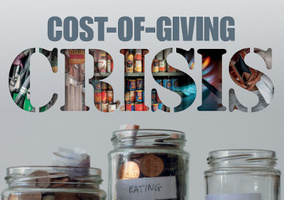This summer has seen record-breaking heat in the UK, leading to drought, fires and travel disruption. And it has not just been in the UK; parts of Europe were also ablaze due to the unprecedented weather conditions.
After years of warnings, we are starting to experience the impact that humans have had on the planet’s climate. Action must be taken to ensure that we do not continue to make the problem even worse.
Action is also needed to make sure that we can cope with the long-term changes in our weather that are now highly likely to be irreversible – both at home and elsewhere around the world, as we know that many of the less wealthy and less developed nations will bear the brunt of the worst effects of climate change.
While there have been no clouds in the sky for much of the past month, there certainly has been a metaphorical cloud in the economic sky over the summer.
The rate of inflation remains high and is predicted to continue to rise throughout the rest of the year. The resulting cost-of-living crisis is causing many to have to start to cut back on spending. For the great many people that have little or no disposable income this is leading to tough decisions and anxiety about the future. As inflation rises, more and more people will find themselves in this situation.
One thing that I personally don’t feel has been discussed enough (at least in the national media), is how the cost-of-living crisis will last far longer than high inflation. All the focus is on how soon inflation will fall, with the implication the crisis will then be over.
When inflation comes down to more manageable levels, that does not mean the pressure will be lifted from those struggling to get by. Most prices will not drop when inflation does. Instead, they will remain high but increase at a slower rate.
Wage increases will inevitably lag behind and it will be some time before they close the gap with higher costs of living.
Even if inflation is transitory and starts to come down next year (which seems to be the most optimistic of the forecasts), the vulnerable in society will need help past that point.
We can only hope that the government at that time recognises this and does not decide that the issue is resolved. Even if it does recognise this reality, many charities will be a lifeline for those that will still be finding it hard to deal with high prices.
Tristan Blythe is the editor of Charity Finance
Related articles












